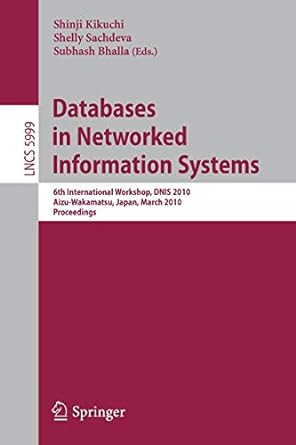Question
This is my first time to leaned Assemblr programming. Professor gave us this file and teach. and my problem is, what is this for? I
This is my first time to leaned Assemblr programming. Professor gave us this file and teach. and my problem is, what is this for? I learned c++, and that was for calculating something, etc. what the heck is this? please teach me this as easiest as possible
---------------------------------
;Example of using the add instruction
;add instruction - ; ; General form: ; ADD operand1,operand2 ; Description: ; operand1 = operand1 + operand2 ; Allowable operands: ; reg,reg - reg,mem - reg,immed ; mem,reg - mem,immed ; Flags changed: ; O,S,Z,A,P,C ; Note: ; Both operands must be of the same size. ; Can be unsigned or signed binary integers.
.386 ;identifies minimum CPU for this program
.MODEL flat,stdcall ;flat - protected mode program ;stdcall - enables calling of MS_windows programs
;allocate memory for stack ;(default stack size for 32 bit implementation is 1MB without .STACK directive ; - default works for most situations)
.STACK 4096 ;allocate 4096 bytes (1000h) for stack
;*************************PROTOTYPES*****************************
ExitProcess PROTO,dwExitCode:DWORD ;from Win32 api not Irvine
ReadChar PROTO ;Irvine code for getting a single char from keyboard ;Character is stored in the al register. ;Can be used to pause program execution until key is hit.
WriteHex PROTO ;Irvine function to write a hex number in EAX to the console
;************************DATA SEGMENT***************************
.data
aNum byte 7h bNum byte 1h
;************************CODE SEGMENT****************************
.code
main PROC
mov ebx, 0C456CCh ;ebx = 0C456CCh mov eax, 9ABC12h ;eax = 9ABC12h mov edx, 45234Bh ;edx = 45234Bh mov bl, 10000b ;bl = 10000b = 10h = 16 (base 10) ;add bl to eax
;add eax, bl ; illegal. both operands must be same size
;add eax, ebx is legal but ebx does not contain correct number to add ;solution: use the movzx instruction ;movzx allows you to move a smaller operand into a larger one ;and zeros out the upper part of the larger operand
movzx edx, bl ;copy bl to dl and zero ; out upper part of edx add eax, edx ;add edx to eax
call WriteHex ;Print number in eax to the console in hex
;add ax, bl ; illegal. both operands must be same size ;add eax, bx ; illegal. both operands must be same size ;Problem if sum will not fit into destination mov bx, 0ffffh ;bx = fffffh. ffffh is the largest 2 byte number mov dx, 1ch ;dx = 1ch add dx,bx ;error: sum will not fit into dx (FFFF+1C = 1001Bh but edx contains only 1bh) ;solution if sum will not fit into destination: copy both operands to a larger type using movzx ;then do addition mov dx, 1ch ;reinitialize dx to 1ch movzx ecx, dx ;copy dx to cx and zero out the upper part of ecx movzx esi, bx ;copy bx to si and zero out the upper part of esi add ecx,esi ;add esi to ecx: ffffh+1cH =1001bh
;add 2 variables mov ebx, offset bNum;get address of bNum to look at bNum in memory window ;add aNum, bNum; illegal. no memory to memory operations
;to add one variable to another first copy one of them to a register
mov al, aNum ; copy aNum to a register add bNum, al ; add al to bNum and store answer back in bNum
call ReadChar ; Pause program execution while user inputs a non-displayed char INVOKE ExitProcess,0 ;exit to dos: like C++ exit(0)
main ENDP END main
Step by Step Solution
There are 3 Steps involved in it
Step: 1

Get Instant Access to Expert-Tailored Solutions
See step-by-step solutions with expert insights and AI powered tools for academic success
Step: 2

Step: 3

Ace Your Homework with AI
Get the answers you need in no time with our AI-driven, step-by-step assistance
Get Started


